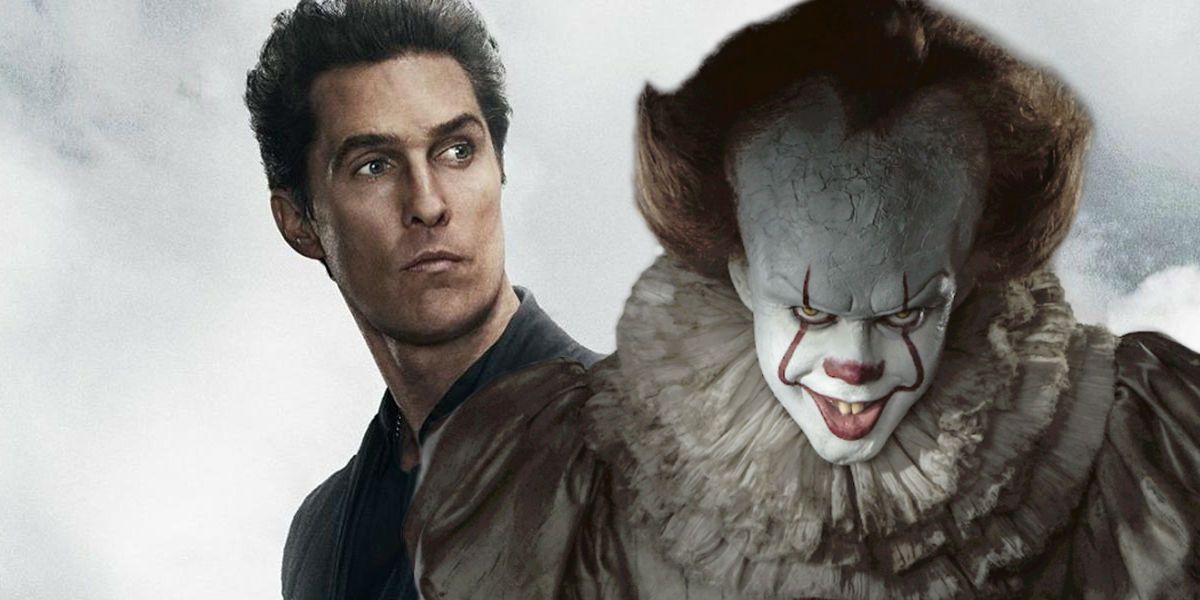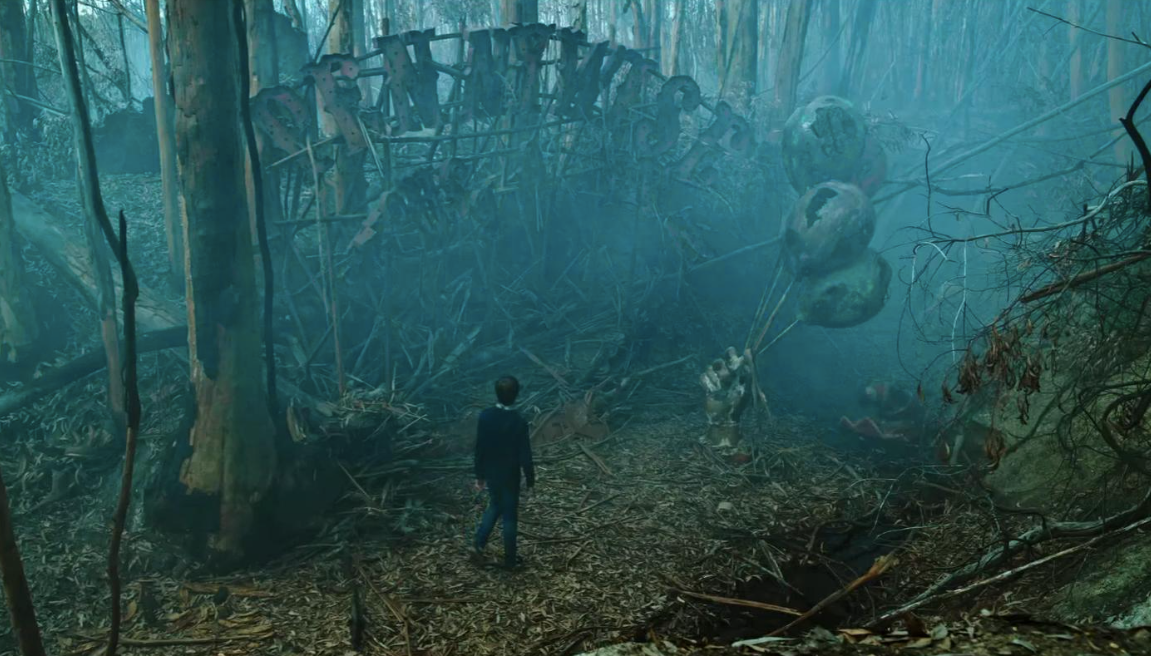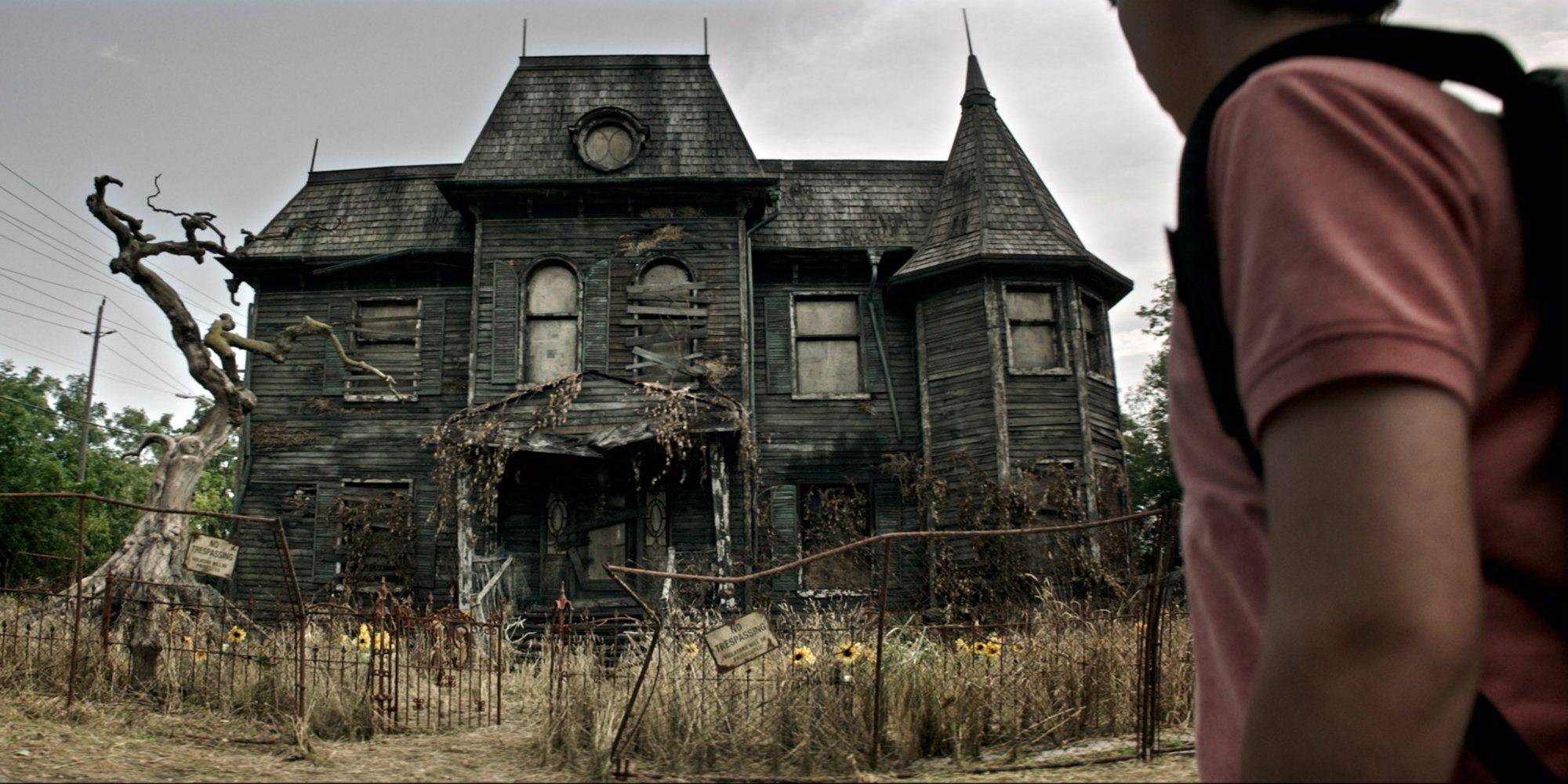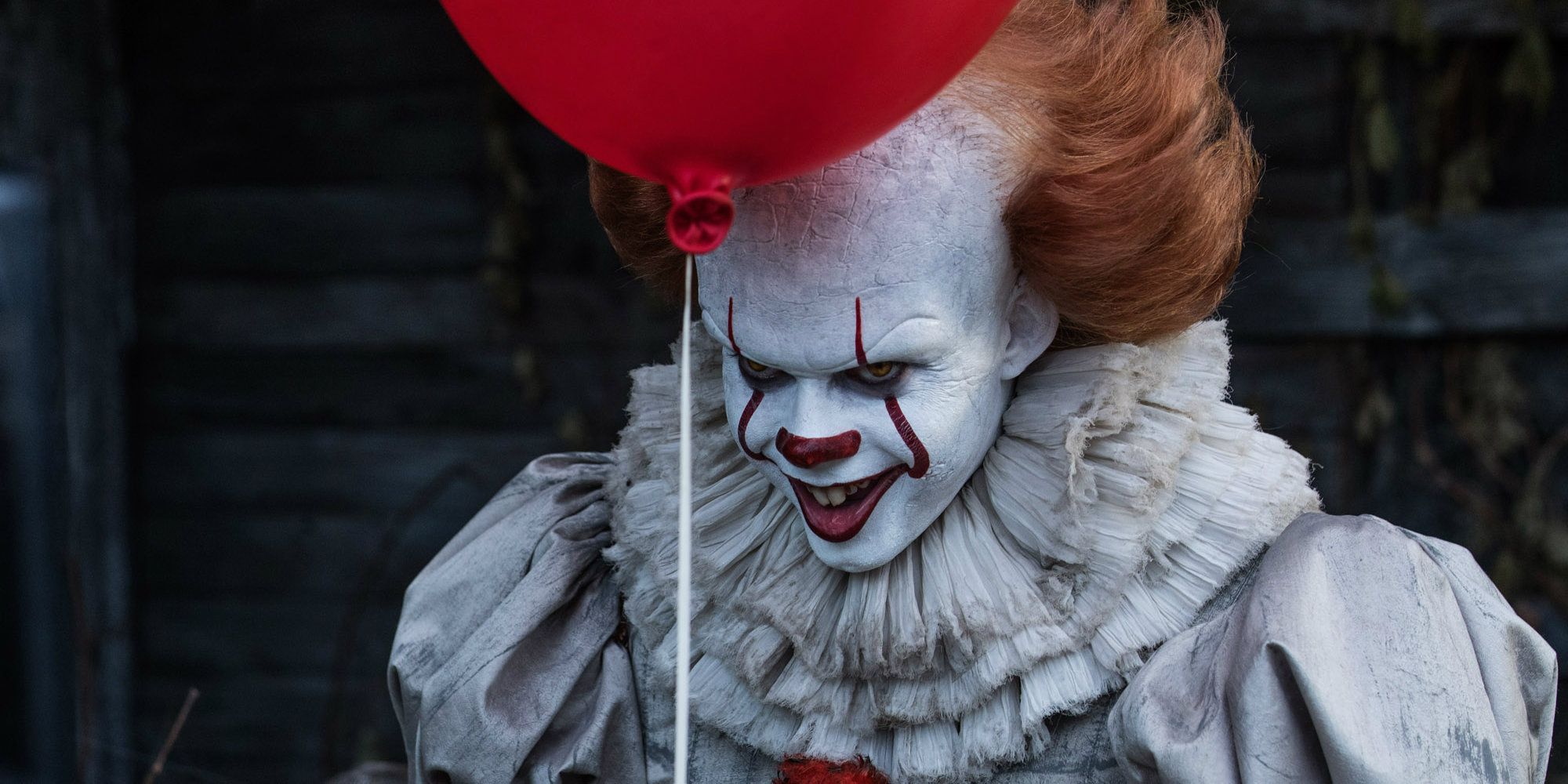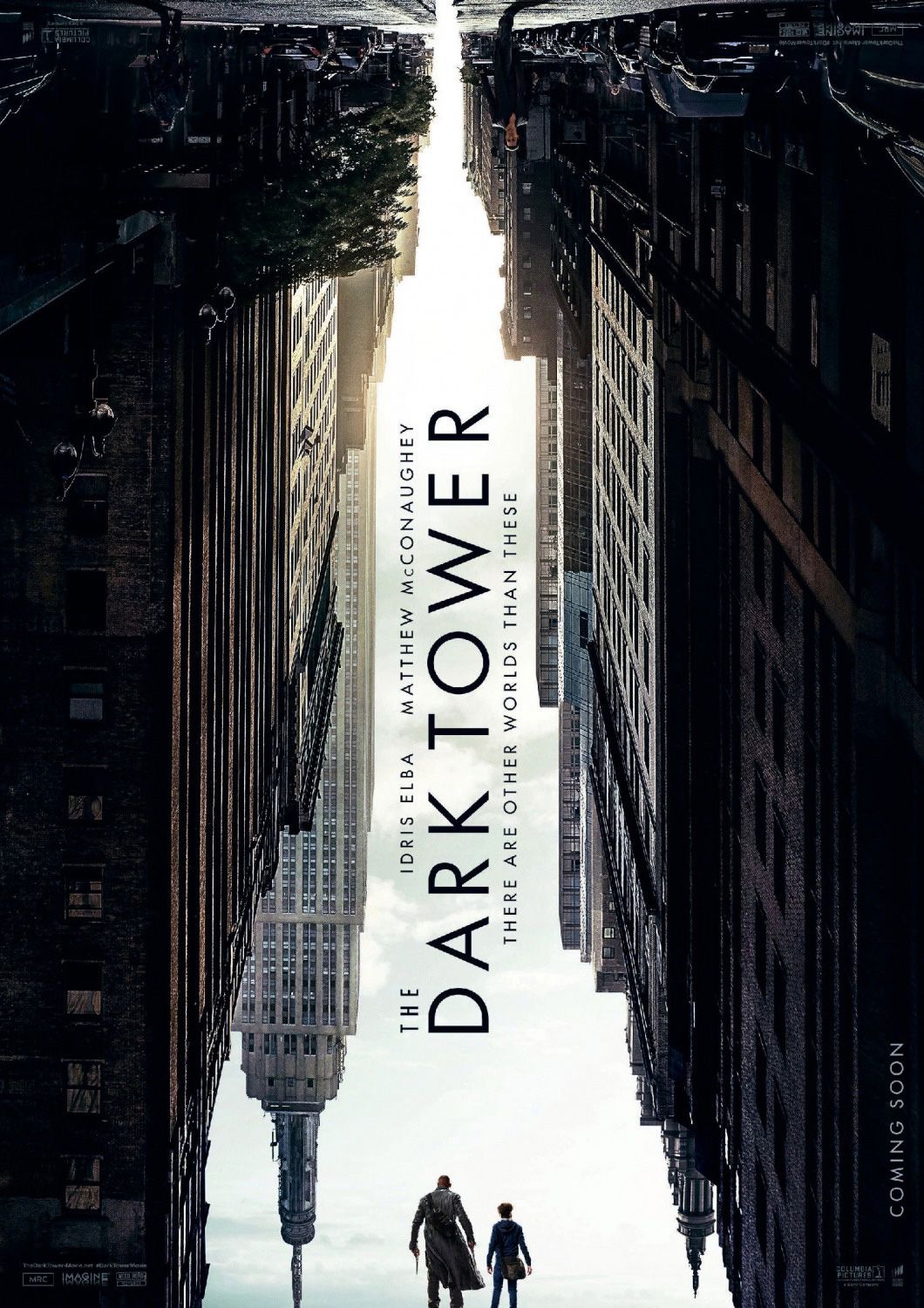Prolific horror and fantasy novelist Stephen King has seen two of his most popular works adapted for the big screen this year. His magnum opus, The Dark Tower, was finally made into a movie after years of development. Starring Idris Elba and Matthew McConaughey, The Dark Tower was released in theaters at the start of August. Meanwhile, IT has also returned to haunt us. The clown-centric horror movie, based on King's classic 1986 novel, stars Bill Skarsgård as Pennywise, with a cast of pre-teens making up The Losers Club. IT's release came almost exactly a month after The Dark Tower, but while The Dark Tower can be declared a flop, IT has floated to the top, enjoying huge success with the biggest opening of any horror movie, ever. And it's not even Halloween!Almost doubling predictions, IT grossed more than $120 million in its opening weekend, while The Dark Tower pulled a meager $19.5 million. While admittedly the two movies are very different from one another, they are still both adaptations from the same, very popular, author. Both are well-known works, and both movies were very highly anticipated. So why did IT succeed, but The Dark Tower failed?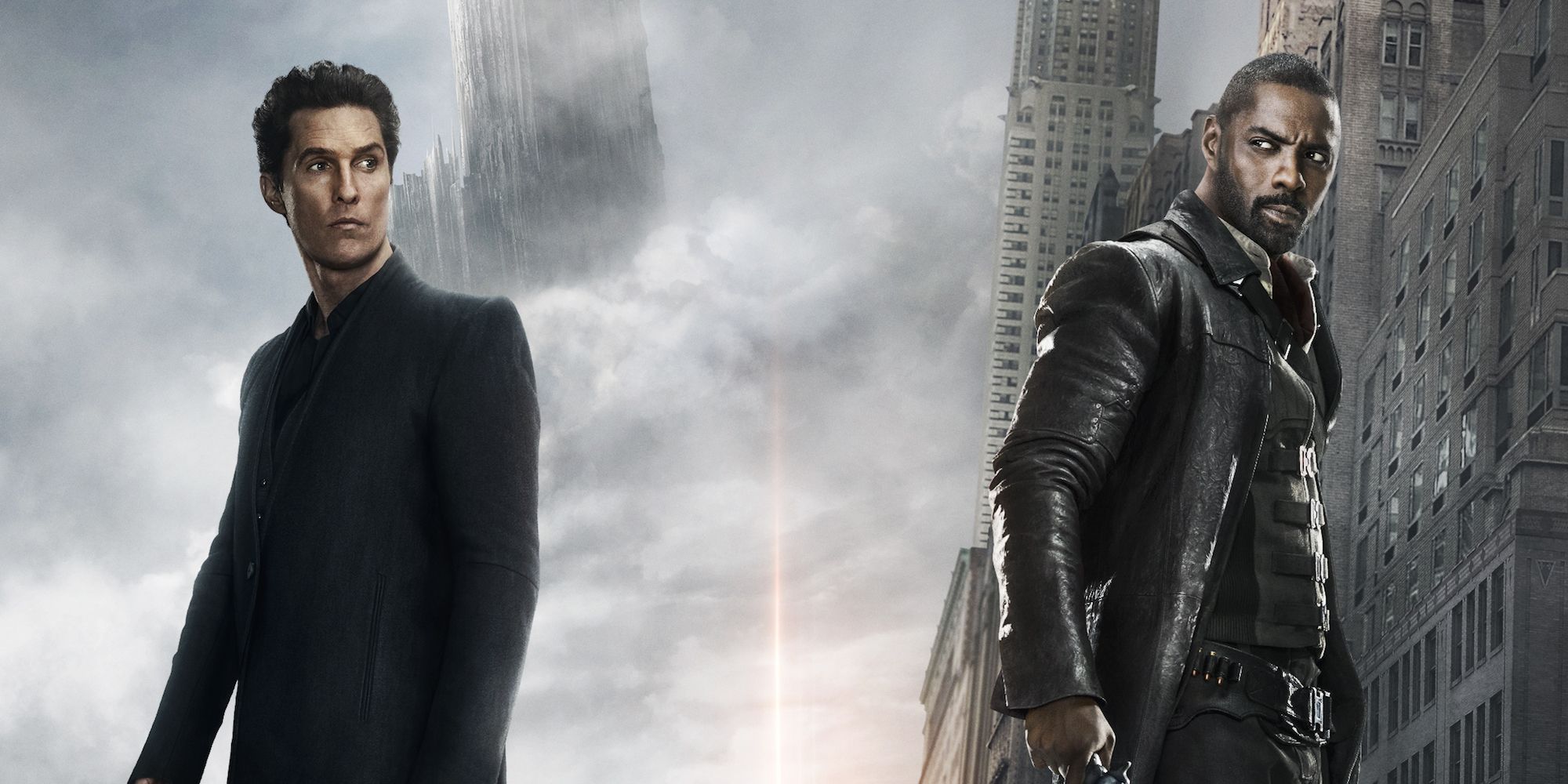 The Dark Tower, as previously mentioned, had been in development for years, landing at various studios before finding its home at Sony Pictures. The casting of Elba as The Gunslinger, opposite McConaughey as the Man in Black, was broadly welcomed by fans, and it seemed as though this movie would be one of the highlights of 2017.The movie also had its challenges, however, since the source material is fiendishly difficult to adapt for the screen. The Dark Tower is a series of seven very long novels, plus two shorter ones, and there's even a comic book series as well. The tale of Roland the Gunslinger's journey is long, detailed, and most definitely worthy of an in-depth retelling. As such, it's impossible to adapt all of the novels into one movie. In fact, if you just took the first novel and adapted that faithfully, you'd be looking at a movie well over three hours long.Maybe this was Sony, and director Nikolaj Arcel's first downfall; they bit off far more than they could chew. The Dark Tower movie, we learned, would draw material from across all of King's books in the series, while also putting its own slant on things. This would not be a sequel, but a continuation of Roland's journey to the tower - another cycle in the never-ending torment that is his life. While this might sound confusing, it made sense to King fans, and we were mostly excited to see what changes Arcel would have made, and what elements would be kept. We were also told that multiple Dark Tower movies were planned, as well as a tie-in TV series, based on the fourth book (a prequel) "Wizard and Glass."
The Dark Tower, as previously mentioned, had been in development for years, landing at various studios before finding its home at Sony Pictures. The casting of Elba as The Gunslinger, opposite McConaughey as the Man in Black, was broadly welcomed by fans, and it seemed as though this movie would be one of the highlights of 2017.The movie also had its challenges, however, since the source material is fiendishly difficult to adapt for the screen. The Dark Tower is a series of seven very long novels, plus two shorter ones, and there's even a comic book series as well. The tale of Roland the Gunslinger's journey is long, detailed, and most definitely worthy of an in-depth retelling. As such, it's impossible to adapt all of the novels into one movie. In fact, if you just took the first novel and adapted that faithfully, you'd be looking at a movie well over three hours long.Maybe this was Sony, and director Nikolaj Arcel's first downfall; they bit off far more than they could chew. The Dark Tower movie, we learned, would draw material from across all of King's books in the series, while also putting its own slant on things. This would not be a sequel, but a continuation of Roland's journey to the tower - another cycle in the never-ending torment that is his life. While this might sound confusing, it made sense to King fans, and we were mostly excited to see what changes Arcel would have made, and what elements would be kept. We were also told that multiple Dark Tower movies were planned, as well as a tie-in TV series, based on the fourth book (a prequel) "Wizard and Glass."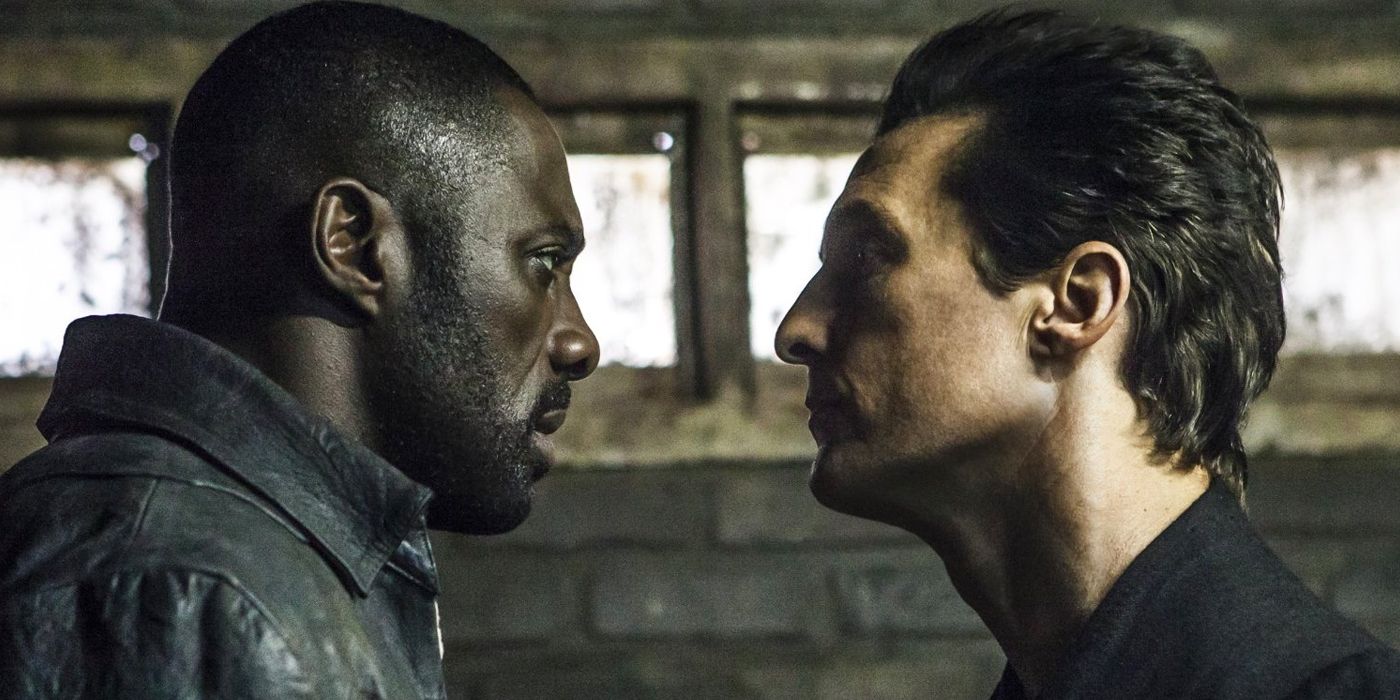 But as work progressed on The Dark Tower, concerns started to emerge. First came news that Eddie and Susannah Dean would not feature in the movie, even though they're two of the most integral characters in the story other than Roland, Jake, and The Man in Black. Then we learned that other characters, who barely feature in much later books, would have larger parts. Fans accepted this, though we all had questions, but reports of the special effects work being awful, and unfinished, could not be ignored.As time went on, it became obvious that The Dark Tower simply would not make its original February 2017 release date, and indeed it didn't. More time was needed to finish special effects work, and so it was moved to July, and then to August. While it's not unheard of for this to happen, it's still a concern, especially when its a movie such as The Dark Tower, which relies heavily upon special effects to make certain scenes - such as Roland's gunslinging, to seem as impressive as they are described in the book.Perhaps The Dark Tower's biggest failing, prior to its release, was Sony's total lack of marketing for the movie. The first trailer didn't arrive until the very end of April 2017. By that point, all the concerns about the delayed release date were already out there, and it's hard to abate those when there's no evidence of a decent movie trailer. And when the trailer did finally arrive, it was good, but not great. The movie posters were similarly dull, subsequent trailers didn't really enhance or add anything to expectations, and all-round promotion for The Dark Tower seemed thin on the ground. Sony upped their game immediately prior to the movie's release, but it was too little, too late.
But as work progressed on The Dark Tower, concerns started to emerge. First came news that Eddie and Susannah Dean would not feature in the movie, even though they're two of the most integral characters in the story other than Roland, Jake, and The Man in Black. Then we learned that other characters, who barely feature in much later books, would have larger parts. Fans accepted this, though we all had questions, but reports of the special effects work being awful, and unfinished, could not be ignored.As time went on, it became obvious that The Dark Tower simply would not make its original February 2017 release date, and indeed it didn't. More time was needed to finish special effects work, and so it was moved to July, and then to August. While it's not unheard of for this to happen, it's still a concern, especially when its a movie such as The Dark Tower, which relies heavily upon special effects to make certain scenes - such as Roland's gunslinging, to seem as impressive as they are described in the book.Perhaps The Dark Tower's biggest failing, prior to its release, was Sony's total lack of marketing for the movie. The first trailer didn't arrive until the very end of April 2017. By that point, all the concerns about the delayed release date were already out there, and it's hard to abate those when there's no evidence of a decent movie trailer. And when the trailer did finally arrive, it was good, but not great. The movie posters were similarly dull, subsequent trailers didn't really enhance or add anything to expectations, and all-round promotion for The Dark Tower seemed thin on the ground. Sony upped their game immediately prior to the movie's release, but it was too little, too late.
The summer box office is notoriously competitive, but even so, a movie such as The Dark Tower should have been able to hold its own. However, poor reviews coupled with a weak marketing campaign resulted in an extremely lackluster performance. Sony tried to claw it back, with more talk of the tie-in TV series being R-rated and featuring Elba (who came in for fair praise along with McConaughey in reviews). Curiously, though, talk of movie sequels has stopped almost entirely, and it now seems as though even Elba himself doesn't know what's happening in The Dark Tower's future. All in all, it's fair to say The Dark Tower was a great opportunity, wasted.
This is a tale of two halves, and IT's story is almost entirely the opposite. First of all, it's worth pointing out that IT has been adapted once before. The 1990 miniseries starred Tim Curry as Pennywise, and while the series itself isn't fantastic, Curry was excellent; truly terrifying, and the reason for many people's fear of clowns across the globe. So IT was already out there; a part of the public's conscience in a format other than King's novel. That said, if anything, the miniseries should harmed news of a remake. Many felt as though Curry was the perfect Pennywise, and so why would they want to see anyone else in the role?
But Warner Bros. used the public's knowledge to their advantage, teasing the 'reveal' of Pennywise with the first-look image being barely more than a glimpse of his face. Skarsgard was also respectful of Curry's performance from the start, pointing out that he would never be able to do a Curry performance as good as the man himself, and so therefore he needed to make his Pennywise different. And from the outset, IT has taken pains to paint itself not as a remake, or reboot of the miniseries, but as its own separate entity. It has worked.
Warner Bros. and director Andres Muschietti have also been sensible in their adaptation of the source material, unlike The Dark Tower. Like most of King's works, IT is a long and detailed novel, spanning a large time frame. Mindful of this, Warner Bros. have titled the movie as IT: Chapter One, on screen, thus paving the way for a sequel (we assume Chapter 2), as well as giving them an easy licence to only adapt half of the book. Again, it works. The movie wraps at a natural point in the story, yet still leaves enough story threads dangling to ensure viewers will most definitely want to return when the sequel arrives.
Cinematic adaptations of King's work need no selling to fans of his writing, most are eager to see his work brought to life. Though success of these adaptations is patchy, the ones that do work, work extremely well (take The Shawshank Redemption, Misery, or The Green Mile as examples). King projects still need to find a way to attract general audiences, rather than just the core fanbase, but IT is proof that you don't need a big name to sell a movie; you just need to have a clever marketing campaign that includes great trailers.
The first trailer for IT arrived six months out from the movie's release, and it successfully ignited both our fears and curiosities. The reveal of Pennnywise was, truly, the stuff of nightmares, and yet we found ourselves irresistibly drawn to any and all promotion that contained the satanic clown with the evil grin. "You'll float too," became an easy to remember tag-line, and the stark red balloon featured on nearly every poster released. Even if you didn't look too closely, it became instantly recognizable. Each and every poster or piece of artwork released seemed more terrifying than the one before, successfully building both the tension and anticipation for the movie, way ahead of its release.
Warner Bros. also gave away information about the movie in a way that Sony just didn't do with The Dark Tower; we saw original artwork, heard about deleted scenes, and saw behind the scenes footage. Throughout, Warner Bros. has run a smart, logical, and detailed marketing campaign that still left plenty to reveal to the viewer in the movie itself. IT is proof that a low-budget horror flick can easily trounce the competition in its marketing, and that goes a long way to ensuring that audiences will actually want to go and see your movie. The amount of casual moviegoers who didn't realize The Dark Tower was being released was staggering. By contrast, you'd have to be living under a rock not to notice that IT was arriving in theaters.
Of course, when it comes to the movies themselves, there's another marked difference. While IT might not be perfect, it is still extremely good, and the reviews have all been strong. It's a faithful adaptation of the book, with some edits, granted, but none that harm the story itself. It is logical, clear, and easy to follow. Screenplay writers Cary Fukunaga, Chase Palmer, Gary Dauberman have adapted IT near perfectly for the big screen; in essence, this adaptation does everything right that The Dark Tower did wrong.
In contrast, The Dark Tower pulled so many negative reviews that if a casual movie-goer was thinking of going to see it, they'd almost certainly be dissuaded. Neither The Dark Tower nor IT had exceptionally large budgets; The Dark Tower came in at around $60 million, while IT only cost $35 million to make. But IT spent almost every dollar wisely, and everything about the marketing, and the movie itself, was well thought-out. The Dark Tower was a jumbled mess from the start, and if that TV series ever does happen, it might be best served ignoring the movie altogether and starting its own continuity. The Tower falls, IT floats, and Pennywise will continue to haunt us all.

